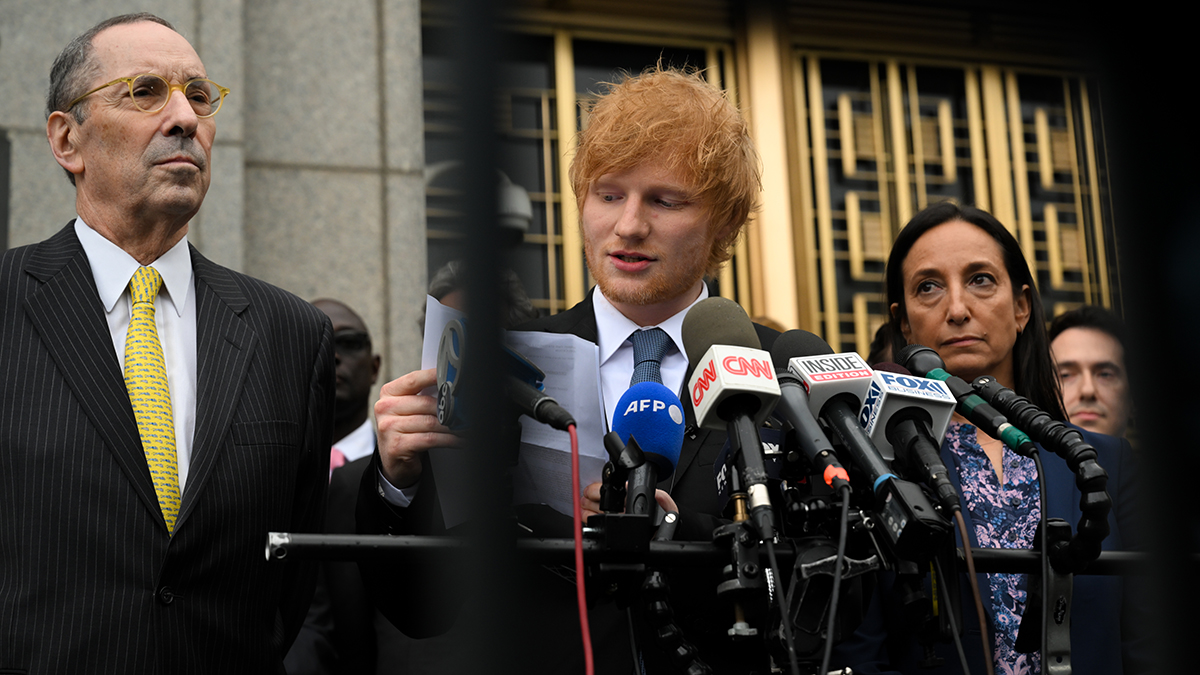Ed Sheeran wins copyright case and claims that if he had lost “we might as well say goodbye to the creative freedom of songwriters”
"It looks like I'm not going to have to retire from my day job after all,” says the star, who had pledged to give up on his music career if he’d been found guilty

A US court has ruled that Ed Sheeran did not copy Marvin Gaye’s Let’s Get It On when he wrote his 2014 hit Thinking Out Loud.
The accusation was made by the heirs of Ed Townsend, co-writer of Let’s Get It On, who argued that the fact that Sheeran had performed a mash-up of the two songs on stage was “a confession” of plagiarism.
Speaking in Sheeran’s defence, lawyer Ilene Farkas countered that, despite the fact that the two songs share a similar chord progression and rhythm, the star was simply using “basic musical building blocks that songwriters now and forever must be free to use”.
Speaking outside court after the verdict, Sheeran said that he was “obviously very happy with the ruling”. He had claimed that he would give up his music career if he’d been found guilty, but now says "It looks like I'm not going to have to retire from my day job after all."
Despite his relief, Sheeran added: “At the same time I am absolutely frustrated that baseless claims like this are allowed to go to court at all. We’ve spent the last eight years talking about two songs with dramatically different lyrics, melodies, and four chords which are also different and used by songwriters every day all over the world.
“These chords are common building blocks which were used to create music long before Let’s Get It On was written and will be used to make music long after we are all gone. They are in a songwriter’s alphabet, our toolkit, and should be there for all of us to use. No one owns them, or the way they are played, in the same way that nobody owns the colour blue
Sheeran also said that: “If the jury had decided this matter the other way we might as well say goodbye to the creative freedom of songwriters.”
Want all the hottest music and gear news, reviews, deals, features and more, direct to your inbox? Sign up here.

I’m the Deputy Editor of MusicRadar, having worked on the site since its launch in 2007. I previously spent eight years working on our sister magazine, Computer Music. I’ve been playing the piano, gigging in bands and failing to finish tracks at home for more than 30 years, 24 of which I’ve also spent writing about music and the ever-changing technology used to make it.